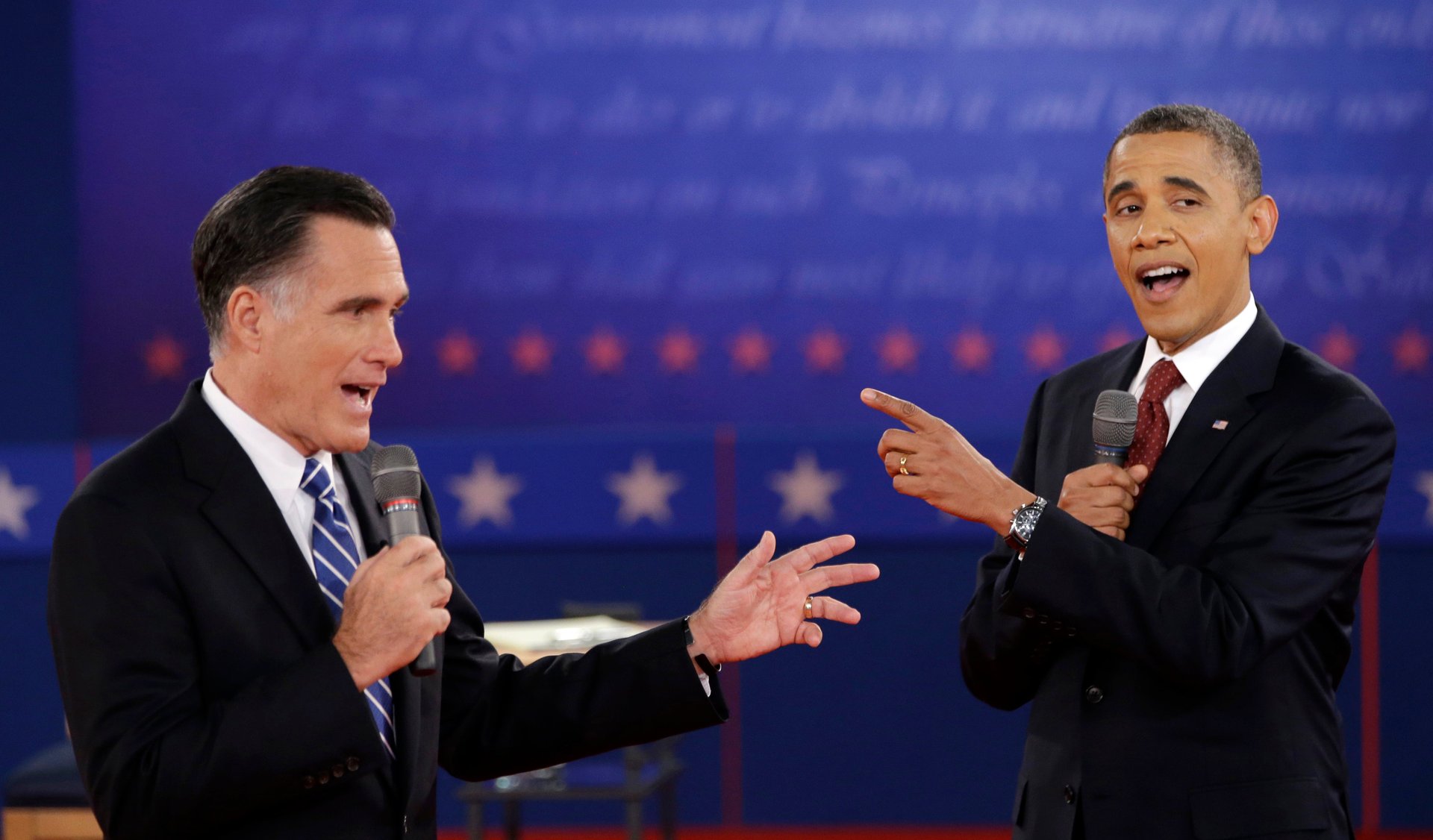To set the stage for Obama and Romney’s final debate, look to this Hillary Clinton speech
The third and final debate between President Barack Obama and GOP nominee Mitt Romney on Oct. 22 will focus on foreign policy. Among the key topics are likely to be Iraq, Libya, Israel, Russia, and China.


The third and final debate between President Barack Obama and GOP nominee Mitt Romney on Oct. 22 will focus on foreign policy. Among the key topics are likely to be Iraq, Libya, Israel, Russia, and China.
But Secretary of State Hillary Clinton wrapped up all those subjects into a little-noticed but powerful speech on Oct. 18 at Georgetown University. Her subject was the global energy and geopolitical shakeup. If you want to understand the stakes for many nations prior to the debate, the speech is a great place to start.
Clinton was inadvertently summing up the premise of Quartz’s obsession with “energy shocks.” It was a bracing 45 minutes in which the United States’ leading foreign policy figure explained why the turbulence in global energy is at the heart of geopolitics. She posed the right questions, though provided few guesses as to where we are headed: who will be stronger, who weaker, who richer, who poorer? (Use our toolkit to try your hand at making a roadmap).
Here are five of Clinton’s most interesting points:
1. The world is at “a moment of profound change.” Who will and won’t benefit is not known, but among those affected will be “the climate, people’s economic conditions, [and] the strength of young democracies,” Clinton said. Yet time is not standing still—how the age will play out is “being written right now.” “The future security and prosperity of our nation and the rest of the world hangs in the balance,” she said. “And all of us, especially all of you here today, have a stake in the outcome.”
2. Both major US political parties speak of becoming “energy independent,” at least from the parts of the world that Americans find frightening or menacing, such as the Middle East. But “our country is not and cannot be an island when it comes to energy markets,” Clinton said. “Oil markets are global and natural gas markets are moving in that direction. Many power grids span national boundaries.” Therefore, good US policy means energy security “at home and abroad.”
3. Given the chance, hydrocarbon-exporting countries can abuse their market power with neighbors, resulting in a threat to their political and economic independence. Clinton made a thinly disguised swipe at Russia in this regard, then said, “And that’s why NATO has identified energy security as a key security issue of our time.”
4. Generally speaking, the world needs to “undo” the so-called resource curse, the theory that resource-rich countries tend to be ruled by dictators who start wars, impoverish their people, and beef up their own Swiss bank accounts. Clinton dismissed the idea widely accepted among academics that the resources themselves are the problem. It is not the oil, she said. “It’s greed.”
5. Some 3 billion people on the planet have no electricity. A common practice in those no-electricity homes is to cook food over fires using dung, wood, and other debris as fuel. As a result, some 2 million people die every year from the acrid smoke. In the western hemisphere, a potential solution is an initiative by Colombia called “Connecting the Americas 2022.” The idea is to link the power grids of every country from Canada to the tip of Chile and across to the Caribbean. It is an ambitious project to say the least, but hats off to Colombia for thinking big.